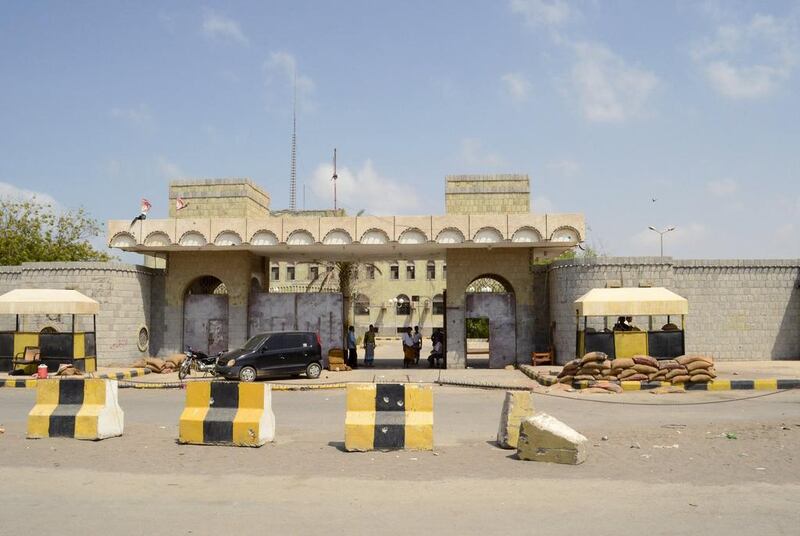ADEN // Air strikes by the Saudi-led coalition killed more than 20 Houthi rebels on Friday as pro-government forces battled for key provinces in the campaign to retake Yemen’s capital.
Nine rebel fighters were killed in air strikes on the Red Sea port of Mokha in Taez province as part of a fresh attempt to cut rebel supply lines to the heavily contested provincial capital.
Taez city is held by forces loyal to the internationally recognised government of Abdrabu Mansur Hadi, but is besieged by the rebels. Securing Taez would allow pro-government forces to push north towards the rebel-held capital, Sanaa.
Ground fighting in Taez on Friday killed at least three civilians and 34 fighters from the two sides, security officials said. Earlier in the day, Saudi airstrikes killed 12 Houthis in the vast desert province of Jawf, paving the way for pro-government ground troops. The move was part of a plan to seize the northern province and advance on neighboring Sadaa province – the Houthi heartland.
The rebels and their allies – renegade units of Yemen’s military loyal to former president Ali Abdullah Saleh – also suffered casualties in a suspected Al Qaeda attack on Friday.
Ten soldiers allied to rebels were killed when suspected members of the extremist group attacked an intelligence building in the rebel-held city of Hodeidah.
A suicide bomber blew himself up at the entrance to the building’s compound, before gunmen started shooting at the soldiers who were guarding the building, said a security source in the western port city.
The gunmen eventually fled the scene after being forced back by the remaining soldiers, said the source, who is loyal to the Houthis.
He told The National that the political security building was targeted because it was held by soldiers allied to the rebels.
Al Qaeda’s Yemen branch often attacks Houthi targets. Extremist groups in Yemen, including a local unit of ISIL, view the Shiite movement that controls Hodeidah and much of the north, as apostates, deserving death. But ISIL has also hit out against the Saudi-led coalition supporting Yemen’s embattled government.
“Aqap [Al Qaeda in the Arabian Peninsula] fighters took advantage of it being the weekend, as most of the soldiers guarding the intelligence building were away,” the source said.
He said that security forces in Hodeidah did not have any information about the identity of the attackers, but believed they had come from rural areas along the border between Hodeidah and Ibb provinces.
The border area is believed to be home to many of the fighters loyal to Aqap.
Mohammed Mamoon, a resident of Hodeidah, agreed that the attack on the intelligence building bore the hallmarks of Aqap. But, he said, the group was not necessarily targeting Houthis, but rather the building itself. “The political security organisation is the main enemy of Al Qaeda and Aqap fighters target intelligence sites in different provinces.”
The security source said forces would not allow Aqap fighters to repeat such an attack in Hodeidah and would step up security across the city until the militants had been cleared from the province.
Elsewhere on Friday, suspected Aqap gunmen ambushed and killed three Yemeni soldiers in the south-eastern province of Hadramawt, a military official said.
“Three soldiers died on the spot and three others were wounded,” the official said.
Aqap has seized large parts of Hadramawt and imposed a strict version of sharia. The group has been in complete control of the provincial capital, Mukalla, since April.
Associated Press and Agence France-Presse
* With additional reporting by Mohammed Al Qalisi in Aden





